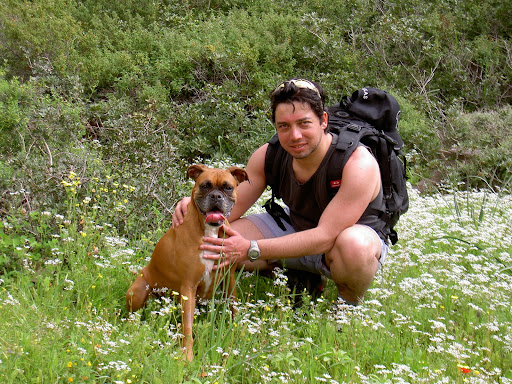What do bread and a DVD player have in common? Apparently nothing. Then how come I went shopping for bread and ended up buying a DVD player? A short story with deep economical insights.
Today I attended a VC conference of
Genesis Partners, presenting a panel of Internet and software industry leaders, including the CTO’s of
American Greetings and
TheStreet.com,
Dr. Nahum Sharfman (
“the Clint Eastwood of high-tech” – B.K), and others. The discussions were round and round web2.0 and social marketing, and how enterprise software companies assimilate with the current trends. It was a very interesting and insightful day, and the different voices shed some light on how enterprise and Internet relate. Then a question was raised (ok, it was me): “
why are classic e-commerce business models of high value shoppers, such as jewelry and grocery, are abandoned in favor of blogs, social networks, and other business models based on advertising traffic and non-paying users? How can e-commerce evolve from here?”.
It seemed like a dark cloud fell on the panel floor, as I suddenly took them all back to the middle ages, where Internet websites made money by selling goods, and not by showing free videos of dancing animals or allowing teenagers to send each others animated silly faces, while struggling to be placed as high as possible in the traffic exchange food chain.
On my way home I stopped by at the mall to buy bread. Just bread. So I also picked some rolls, and an Iraqi Pita bread, and a new frying pan (who can resist that!). Then I recalled I needed rosin core solder, and if I’m already around the electronics department, why not get this T2-T3 splitter combo. On my way to the cashier I suddenly saw that DVD player promotion. Oh why not? It’s super slim, so I can carry it on my bike easily. I was supposed to spend about 5 NIS ($1), and ended up paying 350 NIS ($70). That’s about 7,000% more.
Am I a big spender? It depends on whom you ask, but I’m definitely a victim of the capitalist way (and I love it). You try to run a budget, and the stores try to convince you to spend ten times more on stuff you don’t need. A DVD player is now a commodity, so that makes it easier for them (and harder for me to resist). Is that good?
For those who can target the consumers it’s awesome.So what does my shopping spree have to do with the gnosis that the Internet industry is in its second bubble? Everything!
These days, Internet entrepreneurs who have found revolutionary ways to target online shoppers will find it much harder to raise money, than those who have found another way to share their personal video over their mobile devices. For free, of course.
A bubble? Again, it depends on whom you’re asking. I can only say that a bubble is as such only in retrospect, when it exploded.
My dad used to tell me “
find out what people need most and frequent, and will always do. Then sell it in mass quantities for cheap”. I’m sticking to that. It just sounds more reasonable.
What do you think?
Cheers,
Boaz.









 In Monty Python's "Life of Brian", Brian woke up in the morning, only to discover that a huge crowd is waiting outside his window, waiting for his word of mouth. He tried to convince them not to blindly follow him, and shouted at them "You are all different!", and the crowd shouted back "Yes, we are all different". Then a single voice said "I'm not".
In Monty Python's "Life of Brian", Brian woke up in the morning, only to discover that a huge crowd is waiting outside his window, waiting for his word of mouth. He tried to convince them not to blindly follow him, and shouted at them "You are all different!", and the crowd shouted back "Yes, we are all different". Then a single voice said "I'm not".